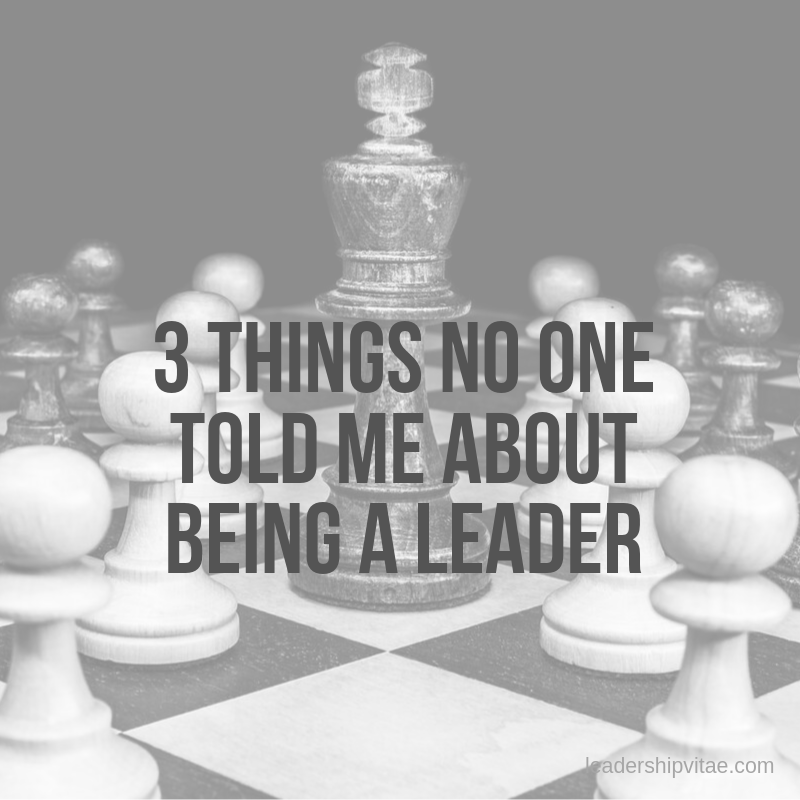
In media, the idea of being our own boss, or somehow going from taking direction to giving direction, permeates.
There are a lot of misconceptions out there about being a leader. Pop culture doesn’t help…movies abound depicting self-involved, absent, uncaring and/or micro managers.
True leadership is not about being in charge, it’s about being responsible for those in your care. About providing them with support and resources so they can get the job done.
The true nature of leadership isn’t the only thing pop culture rarely depicts. There is another side of leadership that is rarely talked about. A burden leaders carry.
1. You will be watched.
It’s not quite as bad as Rockwell’s song “Somebody’s Watching Me” from the 80’s, but close enough. When you are a leader, be prepared to be in a fishbowl.
It’s human nature to observe, analyze, and draw conclusions. Depending on how much information we get from our leaders and how present they are, we take in information however we can best get it. Observation is one method, and the observations of one person are then frequently passed to others.
As a leader, I didn’t realize I’d be “ON” all the time. If you are in an open floor plan, like I am, be mindful when you have meetings, hallway conversations, etc. You’re being watched more than you may realize. Non-verbal cues, who you meet with, even what you eat for lunch. It’s all open for interpretation.
If you’re an introvert like I am, finding time to recharge is critical. I work from home on Fridays to regroup, catch up after a week of meetings, and prepare for the week ahead. Maybe with a ponytail, hoodie, and a pair of funky socks with no one there to judge.
2. You will be held to a higher standard.
Let’s face it, while we may have all been created equally, we are not all treated equally. It would be wonderful if we were, but reality can be very different.
There may be more leeway and flexibility in some areas for leaders. I remember in the beginning when I had to clock my time regularly. Now, I’m expected to manage my schedule and get the job done with little oversight as to how and where that happens.
There is less leeway in other areas. The good and bad choices we make are amplified and magnified as we rise in an organization. Those impacted by our poor choices or that have visibility and weigh in on them? The higher we are, the larger that number grows. It can include other leaders, employees, competitors, or even the public keeping an eye out.
I believe in creating a safe environment to make and learn from mistakes. At the same time, I realize that as a leader, if your mistakes can impact a company’s future, they may create a crisis of confidence. There may be little tolerance for learning.
I’ve made a few career limiting mistakes in my time. Ones that could have shut the doors of a company. I try to be aware of risk, do my best, own up when that’s not enough, and fight to make it right. So far that has been sufficient, but I am also very aware one day it might not be.
3. You’ll be lonely
When someone befriends you or offers an opinion, what is your first thought? Likely, it isn’t “I wonder what they want from me” or “Are they just telling me what they think I want to hear?”
I’m not suggesting those are the first thoughts that crosses every leader’s mind. However, as you are in positions of greater authority and your decisions affect the jobs and pay of others, it’s only natural for that to influence how they engage.
The most well-meaning individual may hesitate to share an honest opinion if they are unsure whether there will be blowback. Someone less scrupulous may share what they think a leader wants to hear if it may improve their standing.
I don’t always know someone’s motives. I’ve been lied to. Disappointed many times. I could let that influence how I show up with others. Instead, I assume good intent and learn the lesson about that one individual if intentions are otherwise. I also have a tight inner circle that helps me keep perspective so I don’t let the actions of a few influence how I perceive the many.
Often, there become fewer and fewer people you can soundboard with or trust with your innermost thoughts.. I’ve heard from several leaders how important family and close friends are to keep you connected. You may be busy, but never get too busy to value those closest to you. You’ll need them.
Bonus: The bubble is real
We all start somewhere. Sometimes we stay and sometimes we move up the ladder. Climb as high as you like, you likely didn’t start there.
The further removed any of us are from where we started, and the more time that passes, the easier it is to forget. To lose touch with who we were. The struggles. The perspective.
If most of the people around you are other leaders, or those of a similar socioeconomic makeup, there is a potential lack of diversity in input and feedback. Add in the potential of your teams managing the messages up, and you can end up living in a bubble. And leading in one.
You have to go out of your way to get different perspectives. To remember what it was like to make trade-off decisions about gas money or food. About the difference a dollar an hour might make. Or a bit of praise.
Whether it’s volunteering, reverse mentoring, or other opportunities, finding ways to connect with those outside the bubble is critical to sound decision making and empathetic leadership of our teams.
I didn’t realize how small and narrow my circle, and my life, had gotten living in NH for 16 years. Now that I’m in NC, I’ve found many opportunities to challenge my thinking and remember life before financial stability. It’s helping me, if not burst the bubble, at least let a little bit of light in.
What other lessons have you learned about leadership that no one told you? Ones that you did not expect? I would love if you would share your experience in the comments.
If you found this article valuable, please consider sharing it with your network.









8 Responses
Cannot agree strongly enough with this message. I suppose the disconnect is no different from when I was staff level, but as a leader I’m frequently shocked by how unaware staff level team members are of the challenges we face. On the rare occasions I’ve discussed it I got the “boo hoo” response and to some degree I get it, but the burden is so very real. Knowing just how much I’m relied upon, how much influence I have (intentional or otherwise) is no ego boost. It can shake my very foundation to think of the impact of even small decisions.
I love being a leader- I get to help drive business, lift others, and really help influence my industry. Some of the perks are nice too, but I always remember that I AM on stage and any decision of any magnitude taken lightly or without due care can cause damage in ways I may never see.
Thank you for this reminder!
Thank you Michael for sharing your thoughts. Each of these insights was generated watching and listening to other leaders. I had taken them as “part of the job” without conscious consideration. Awareness is the start to growth, and the more senior we are, the less we can afford on the job training.
I’ve always been an organizational leader – a Board President or a staff Executive Director – and I’ve never felt lonely. I could get advice and support from peers in other organizations. Being a leader is great!
David,
I appreciate your perspective and it seconds my thoughts. It’s through outside relationships that we have to find connection and support, due to the nature of our role inside an organization and perceived divide it can create. I referenced family and friends, but your point about outside colleagues is well taken. Thank you!
Kristin
I strongly agree with the perspectives and views expressed in this article. They are simple, generally expected n life as a whole, straight forward, but nobody will teach you or provide appropriate advice on during your leadership training.
What I learned myself was similar: When you are a professional in the workplace, you should develop a broader mindset, not a narrow professional perspective, in problem-solving. For instance, if you are an Engineer, you approach problem-solving with a different mindset that includes perspectives of your marketer colleague. The professional approach is ok at a lower functional level but as you advance up the ladder, you need to develop a general-view-mindset, where you know enough about every aspect of your activity. This will enable you to set goals and adequate time for departmental needs and resources within the organization.
Without due diligence in this approach, leaders may struggle to deliver on set goals.
Agreed! I was fortunate to develop a little bit of knowledge in a wide variety of areas before going into project management and leadership. It allowed me to provide knowledgeable support to others without going too deep relying on my own experience in one area or another. Deep understanding can be absolutely beneficial, but balance of other perspectives is so necessary as you move into leadership roles.
This is a great article. Combating the loneliness is a challenge, and one must be intentional about it. I completely agree that its best to assume good intentions and accept that once in a while you are going to get burned, but many more times wonderful things will happen. Balancing the competing interests, making fully-informed decisions, keeping people motivated, encouraging honest debate, encouraging staff growth and ownership…. It’s hard work, fraught with pitfalls while offering opportunities to make a positive difference.
Thank you Robert. Yes, being a leader is definitely worth the potential pitfalls and hard work. The benefits of helping others and making a positive difference far outweigh the rest.